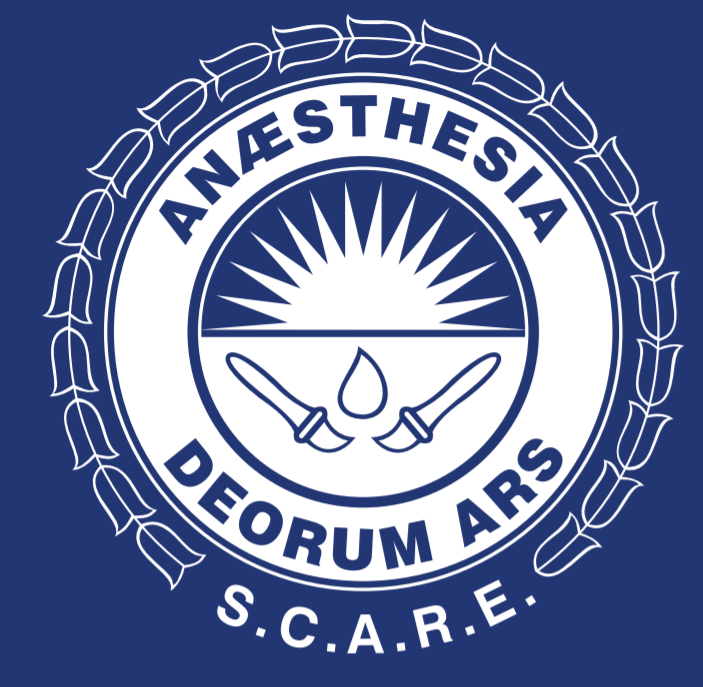Therapeutic hypothermia after prolonged cardiopulmonary resuscitation due to pulmonary thromboembolism. Case report
Abstract
This is a report of a 41-year-old patient undergoing femur osteosynthesis (OS) who develops intraoperative cardiac arrest (CA) with pulseless electrical activity (PEA). Massive pulmonary thromboembolism (PTE) was diagnosed as the cause for the CA and a thrombolysis performed 30 min later reestablished spontaneous circulation with no new CA events. Therapeutic hypothermia (TH) was then established with local measures for 18 h for brain protection. The patient was extubated 24 h later with no neurological deficit. There is an increasing evidence of TH and its protective mechanisms in patients with non-shockable arrest rhythms leading to a widespread use of the technique in various institutions around the world, with particular emphasis on neurological outcomes. This article discusses a review of the current literature on TH, in addition to describing each of the stages in TH and how to approach these stages.
References
2. Nagao K. Therapeutic hypothermia following resuscitation. Curr Opin Crit Care. 2012;18:239-45.
3. Bernard SA, Gray TW, Buist MD, Jones BM, Silvester W, Gutteridge G, et al. Treatment of comatose survivors of out-of-hospital cardiac arrest with induced hypothermia. N Engl J Med. 2002;346:557-63.
4. Fredriksson M, Herlitz J, Engdahl J. Nineteen years' experience of out-of-hospital cardiac arrest in Gothenburg: Reported in Utstein style. Resuscitation. 2003;58:37-47.
5. Fugate JE, Brinjikji W, Mandrekar JN, Cloft HJ, White RD, Wijdicks EF, et al. Post cardiac-arrest mortality is declining: A study of the US National Inpatient Sample 2001 to 2009. Circulation. 2012;126:546-50.
6. Weng Y, Sun S. Therapeutic hypothermia after cardiac arrest in adults: Mechanism of neuroprotection. Phases of hypothermia, and methods of cooling. Crit Care Clin. 2012;28:231-43.
7. Bernard S. Hypothermia after cardiac arrest: Expanding the therapeutic scope. Crit Care Med. 2009;37 Suppl:S227-33.
8. Bisschops LL, van der Hoeven JG, Hoedemaekers CW. Effects of prolonged mild hypothermia on cerebral blood flow after cardiac arrest. Crit Care Med. 2012;40:2362-7.
9. Seder S, Van der Kloo TE. Methods of cooling: Practical aspects of therapeutic temperature management. Crit Care Med. 2009;37 Suppl:S211-22.
10. Abella B, Zhao D, Alvarado J. Intra-arrest cooling improves outcomes in a murine cardiac arrest model. Circulation. 2004;109:2786-91.
11. Ostadal P, Mlcek M, Kruger A. Mild therapeutic hypothermia is superior to controlled normothermia for the maintenance of blood pressure and cerebral oxygenation, prevention of organ damage and suppression of oxidative stress after cardiac arrest in a porcine model. Journal of Translational Medicine. 2013;11:124.
12. Bernard SA, Smith K, Cameron P, The Rapid Infusion of Cold Hartmanns (RICH) Investigators. Induction of therapeutic hypothermia by paramedics after resuscitation from out-of-hospital ventricular fibrillation cardiac arrest: A randomized controlled trial. Circulation. 2010;122:737-42.
13. Naira SU, Lundbyeb JB. The occurrence of shivering in cardiac arrest survivors undergoing therapeutic hypothermia is associated with a good neurologic outcome. Resuscitation. 2013;84:626-9.
14. Navarro JR, Díaz JL. Síndrome posparo cardiaco. Rev Colomb Anestesiol. 2014;42:107-13.
Downloads
Altmetric
| Article metrics | |
|---|---|
| Abstract views | |
| Galley vies | |
| PDF Views | |
| HTML views | |
| Other views | |














